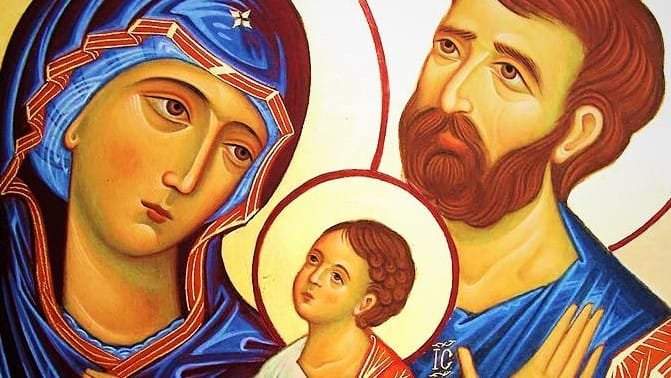DAILY GOSPEL COMMENTARY: “NO ONE IS A PROPHET IN HIS OWN COUNTRY” (Mt 13:54-58).
GOSPEL OF FRIDAY, 17TH WEEK IN ORDINARY TIME (Mt 13:54–58)
Jesus came to his native place and taught the people in their synagogue. They were astonished and said, “Where did this man get such wisdom and mighty deeds? Is he not the carpenter’s son? Is not his mother named Mary and his brothers James, Joseph, Simon, and Judas? Are not his sisters all with us? Where did this man get all this?” And they took offense at him. But Jesus said to them, “A prophet is not without honor except in his native place and in his own house.”
And he did not work many mighty deeds there because of their lack of faith.
GOSPEL COMMENTARY
From the Navarre Bible, Commentary to the Gospel of St. Matthew (with permission).
- 53-58 “No one is a prophet in his own country.”
- The Nazarenes’ surprise is partly due to people’s difficulty in recognizing anything exceptional and supernatural in those with whom they have been on familiar terms.
- Hence the saying, “No one is a prophet in his own country”.
- These old neighbours were also jealous of Jesus: where did he acquire this wisdom?, why he rather than us? They were unaware of the mystery of Jesus’ conception; surprise and jealousy cause them to be shocked, to look down on Jesus and not to believe in him: “He came to his own home, and his own people received him not” (Jn 1:11).
- “The carpenter’s son”: this is the only reference in the Gospel to St Joseph’s occupation (in Mk 6:3 Jesus himself is described as a “carpenter”).
- Probably in a town like Nazareth the carpenter was a general tradesman who could turn his hand to jobs ranging from metalwork to making furniture or agricultural implements.
- The Nazarenes’ surprise is partly due to people’s difficulty in recognizing anything exceptional and supernatural in those with whom they have been on familiar terms.
- For an explanation of Jesus’ “his brothers…his sisters”, see https://catholicsstrivingforholiness.org/did-jesus-have-biological-brothers-and-sisters-no-he-didnt/
Where does all his doctrine come from Christ? It is the question that his countrymen asked themselves. His doctrine and authority made his countrymen explode with admiration, but it was an admiration of scandal. They knew his relatives and they knew that the Messiah no one would know where he came from. But, by their facts and doctrine they could deduce that a mere man could not do them. Saint Jerome comments:
- “Observe the folly of the Nazarenes: they wonder in amazement where wisdom comes from Wisdom and where power comes from Power. The error is evident; they thought he was the son of the carpenter … The error of the Jews is our salvation and the damnation of heretics. They saw the man in Jesus Christ to such an extent that they thought he was the son of a carpenter. Do you wonder that they are wrong about their brothers when they are wrong about the father?…
- “But having come there, while He slackens somewhat in His miracles; so as not to inflame them unto more envy, nor to condemn them more grievously, by the aggravation of their unbelief: He yet puts forth a doctrine, having no less of wonder in it than the miracles. For these utterly senseless men, when they ought to have marvelled, and to have been amazed at the power of His words, they on the contrary hold Him cheap, because of him who seemed to be His father; yet we know they had many examples of these things in the former times, and from fathers of no note had seen illustrious children.” (Commentary on the Gospel of Matthew 13: 53-58).
VIDEO COMMENTARY ON TODAY’S GOSPEL
TOPIC: Do you reject people on the basis of faith, familiarity or flaws?
In today’s gospel, Jesus returned to Nazareth, where he grew up, after going through the towns surrounding the Lake of Galilee teaching.
The townspeople of Nazareth were skeptical because they think they knew Him and were offended by His telling them how to live their lives. Similar to Jeremiah and the other prophets of the Old Testament, Jesus was rejected by His own people.
Jesus was not discouraged. He kept pressing on so that people will eventually repent and believe in the gospel. But, of course, in his own hometown, He could not perform as many deeds as He did in other towns because people did not want His help as they did not believe. We must remember that He only performs His miracles to those who ask. Because He respects our freedom.
We reflect on Rejection that comes in many forms.
Stay updated: subscribe by email for free TO OUR NEW WEBSITE www.catholicsstrivingforholiness.org (PUT YOUR EMAIL IN THE SUBSCRIBE WIDGET).
We are also in www.fb.com/Catholicsstrivingforholiness. Kindly help more people in their Christian life by liking our page and inviting your family, friends and relatives to do so as well. Thanks in advance and God bless you and your loved ones! Fr. Rolly Arjonillo
